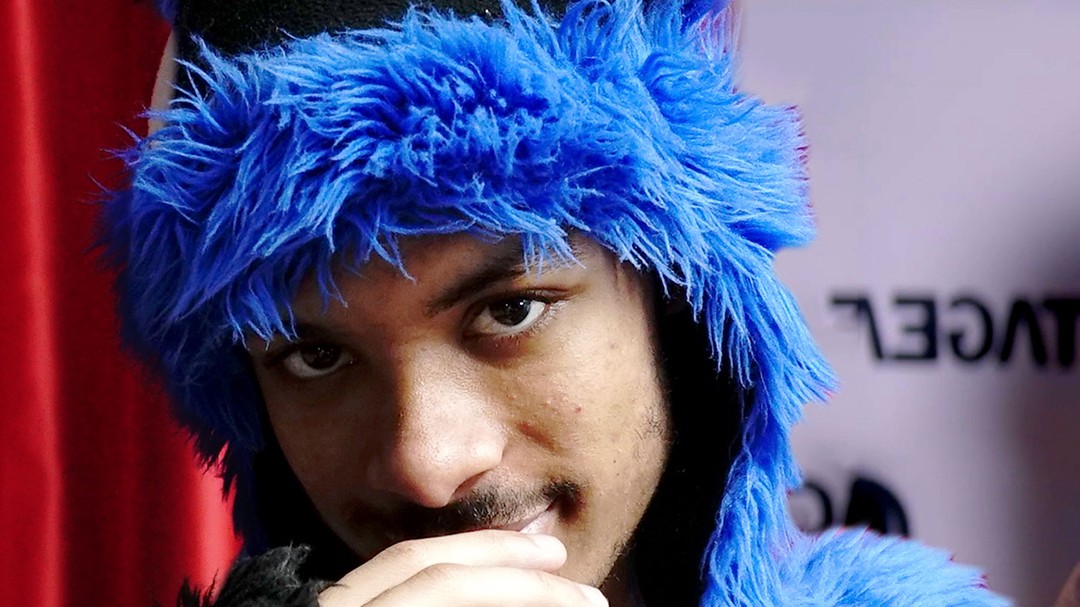A teenager plays 'Apex Legends' on a PS4 Pro. (Photo by Chesnot/Getty Images)
Console makers Sony, Microsoft, and Nintendo will soon require video game developers to disclose the probability of receiving randomized items in paid loot boxes for games on their platforms, the Entertainment Software Association (ESA) announced at the Federal Trade Commission's loot box workshop on WednesdayMichael Warnecke, ESA’s senior policy counsel said that the new rules “would require the disclosure of the relative rarity or probabilities of obtaining randomized virtual items in games that are available on their platforms,” GamesIndustry.biz reported. The policy will apply to new games and game updates that add loot box features, Warnecke explained. ESA has not clarified what these policies will look like in-action. VICE Games has reached out to Microsoft, Sony, and Nintendo for more information about their upcoming policies.In a blog post published this morning, the ESA noted that while the "precise timing" of the rollout is still in the works, the companies "are targeting 2020 for the implementation of the policy." ESA also said that some "publisher members" of the association that already disclose this information, and plenty more have agreed to do the same before late 2020.For instance, developer Blizzard Entertainment released its loot box drop rates for Overwatch to comply with Chinese gaming regulations. Respawn Entertainment’s Apex Legends also lists the odds players can expect when buying loot boxes, and this year Epic Games’ Fortnite made its loot boxes transparent so players can see what they’re buying.“At Nintendo, ensuring that our customers can make informed choices when they play our games is very important,” Nintendo spokespeople said. “As part of our ongoing efforts in this area, Nintendo will require disclosure of drop rates in Nintendo Switch games that offer randomized virtual items for purchase, such as loot boxes. This requirement will apply to all new games and includes updates to current games that add loot boxes through in-game purchases.” The list of ESA members includes major video game studios and publishers such as Activision Blizzard, Bandai Namco Entertainment, Bethesda, Bungie, Electronic Arts, Microsoft, Nintendo, Sony Interactive Entertainment, Take-Two Interactive, Ubisoft, Warner Bros. Interactive Entertainment, and Wizards of the Coast."Sony Interactive Entertainment aims to ensure PlayStation users have access to information and tools, such as parental wallet controls, that will help them make informed decisions about in-game purchasing," Sony spokespeople said. "We support industry efforts to disclose the probability of obtaining randomized virtual items, known as loot boxes, and are committed to providing consumers with this information for all games we produce and publish."The debate over loot boxes has been raging in earnest since 2017, when publisher Electronic Arts faced criticism for its microtransaction structure for Star Wars: Battlefront II. Governments have already begun enforcing policies against the practice, arguing that loot boxes exploit children and have addictive properties akin to gambling.In the Netherlands, four games were found in violation of the Dutch Gaming Act in 2018. In May 2019, United States senator Josh Hawley of Missouri introduced legislation that would ban "the exploitation of children through 'pay-to-win' and 'loot box' monetization practices by the video game industry," according to his announcement.Apple did implemented a policy in 2017 that shared drop rates with users, and Google followed suit in late May. Now, it sounds like most mainstream video games will do the same.Update: This article was updated with comment from Sony.
The list of ESA members includes major video game studios and publishers such as Activision Blizzard, Bandai Namco Entertainment, Bethesda, Bungie, Electronic Arts, Microsoft, Nintendo, Sony Interactive Entertainment, Take-Two Interactive, Ubisoft, Warner Bros. Interactive Entertainment, and Wizards of the Coast."Sony Interactive Entertainment aims to ensure PlayStation users have access to information and tools, such as parental wallet controls, that will help them make informed decisions about in-game purchasing," Sony spokespeople said. "We support industry efforts to disclose the probability of obtaining randomized virtual items, known as loot boxes, and are committed to providing consumers with this information for all games we produce and publish."The debate over loot boxes has been raging in earnest since 2017, when publisher Electronic Arts faced criticism for its microtransaction structure for Star Wars: Battlefront II. Governments have already begun enforcing policies against the practice, arguing that loot boxes exploit children and have addictive properties akin to gambling.In the Netherlands, four games were found in violation of the Dutch Gaming Act in 2018. In May 2019, United States senator Josh Hawley of Missouri introduced legislation that would ban "the exploitation of children through 'pay-to-win' and 'loot box' monetization practices by the video game industry," according to his announcement.Apple did implemented a policy in 2017 that shared drop rates with users, and Google followed suit in late May. Now, it sounds like most mainstream video games will do the same.Update: This article was updated with comment from Sony.
Advertisement

Advertisement